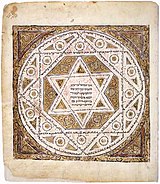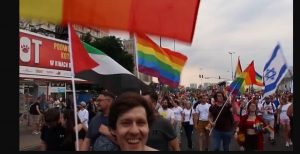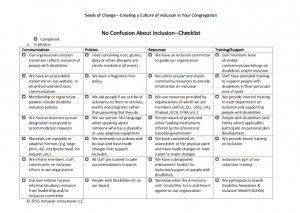A few weeks ago we “installed” the new board of Congregation Kneseth Israel. Here are my remarks on leadership and courage and stepping up to the plate or into the water:
Today we will finish reading the Book of Leviticus. The full reading begins:
“If you follow My laws and faithfully observe My commandments, I will grant your rains in their season, so that the earth shall yield its produce and the trees of the field their fruit…. I will grant peace in the land, and you shall lie down untroubled by anyone; I will give the land respite from vicious beasts, and no sword shall cross your land.”
It is covenantal language. If you do my commandments, I will take care of you. And as was pointed out to me, none shall make us afraid. The difference between a covenant and an ordinary contract, according to Myron, according to Rabbi Lord Sacks, is love. Love is that special ingredient. People who rise to the occasion and go into synagogue leadership is because they love. They love Judaism. They love the institution of the synagogue, They love this very building. They love their children. Next week we celebrate the connection between covenant and love as we celebrate Shavuot, the marriage between G-d and the people of Israel.
Our portion today ends with:
“These are the commandments that the LORD gave Moses for the Israelite people on Mount Sinai.”
We hold these commandments in sacred trust. They are our legacy that we give to our children and our children’s children. Much like the story of Honi whose ancestors planted for him, and he planted for his children and his children’s children, so do we choose to plant for our children and children.
When we finish the reading we will say, chazak, chazak v’nitchazek, be strong, be strong and be strengthened.
The Book of Leviticus is addressed mostly to the priests who were tasked with sacred service, with the leadership of the people before G-d. But is also repeated says to Moses, Speak to the whole Israelite people and say. Those sections are amongst the most important, and the most beloved, because they are addressed to all of Israel. And not just to those standing there that day, but even to their children and their children’s children to a thousand generations. To those yet unborn. To us today. It tells us how to set up a kehilah kedosha, a holy community. That is the business that we as a synagogue is engaged in.
One section in particular is called the holiness code and it tells us that we should be holy because I the Lord your G-d am holy.
There is a wonderful book of essays, by Rabbi Larry Kusher, I’m G-d and You’re Not, Observations on Organized Religion and Other Disguises of the Ego. It talks a lot about what the function of a synagogue is. It also talks a lot about leadership and what the function of a board is. Basically, it is to make sure that we are a “house of prayer for all people”, a house of study and a house of assembly, the three main functions of a synagogue. That’s our vision statement, to provide lifelong learner, meaningful observance, building community and embracing diversity. When the board spends too much of its time on ancillary tasks—worrying about the mortgage or how many photocopies people are making, Kushner’s examples, necessary questions, maybe the priorities are wrong.
As leaders, you have set the priorities, lifelong learning, meaningful observance, building community and embracing diversity. The devil is in the details. You are tasked with carrying out the details. But, you don’t have to do it alone.
When Jethro, Moses’s father in law and a Midiante priest was worried about Moses doing too much, he told Moses that he could not do what he was doing alone. He told Moses to appoint people under him. Which is exactly what Moses did. Moses learned to delegate. It was only then that they came to the foot of Mount Sinai ready to receive the Torah.
Even then, leadership was a difficult thing. The people got scared. They begged Aaron to build a golden calf. Aaron, being a peacemaker, did. Moses was aghast when he came back down the mountain and saw the people dancing around the cow. He was angry, really, really angry. He smashed the tablets. G-d told him that he had to go back up the mountain. Moses argued with G-d, demanding to know who will go with Moses. G-d answered, “I will go with you and give you rest.” No less than G-d will lighten Moses’s burden. Any of our burdens.
Rest is important as a leader. None of us can do the task of leadership alone. Pirke Avot teaches that “Ours is not to finish the task; neither are we free to ignore it.”
So to those of you who are going off the board, or who are taking a break from a formal leadership role, we say thank you. Thank you for your vision and your courage. Your willingness to say, “We will do and we will hear.”
To Dick, who stepped up, or maybe like Nachson Ben Aminidav, you stepped into the water, you waded into the water, we say thank you. You never thought you would be a synagogue president and you led us through a difficult time period with grace and compassion. It is now time for you to sit under your vine and fig tree, and enjoy that new patio—and maybe another long run, bike ride or swim. You were the very first person I met at CKI. You were the one Sue sent to O’hare to pick me up and we bonded before we left O’hare over marathoning. No more, what does Sue call it, PI. You can rest now.
And to your partner, your life partner, your beloved, who you married almost 50 years ago this month, right in this very room, Sue, who is also going off the board after long service, we also say thank you. Thank you for being you. Thank you for being there day in and day out. Thank you for Thursday morning phone calls and endless cups of coffee brainstorming. For all the little things you do—too numerous to count and some of which you will continue to do.
To Jana, who has edited HaKol for 14 years (I think) and the chaired the kitchen. Thank you for all the little details because both require such attention to little details. You kept me on task. Thank you.
It isn’t always easy to be a leader. Sometimes when just beginning, you may be afraid, perhaps even be quaking. Someone else, please raise your hand? Why do I have to do this? But like Abraham and Moses, you have said Hineni, here am I. That requires courage.
There are different forms of leadership in the Bible from our leaders that demonstrate courage, emetz lev. Abraham and Moses argue with God, Abraham on behalf of Sodom and Gomorrah, Moses after the golden calf when God again gets angry. Shifrah and Puah defy Pharaoh and deliver the baby Hebrews. Nachson ben Aminidav first puts his toe in the water and then wades up to his nostrils. Queen Esther overcomes her own fear and figures out a way to speak up and save her people.
At the very end of Deuteronomy and at the beginning of the Book of Joshua G-d tells Joshua, chazak v’emetz, be strong and of good courage. Three times G-d repeats it at the beginning of Joshua. First about leading the people. Second about keeping Torah and then about entering the land of Israel.
First about leading the people. That’s what we are going to explore this year together. How do we lead the people. The Torah might answer that by saying with Torah as our guide. With deeds of lovingkindness.
The Torah says about keeping the Torah, “Be strong and very courageous to observe and do in accordance with all of the Torah that Moses My servant has commanded you. Do not stray there from right or left, in order that you succeed wherever you go…then you will succeed in all your ways and then you will prosper.” This message is for Joshua and for all of us and brings us comfort as we transition leadership.
We echo this promise of chazak, strength, when we finish reading a book of the Torah as we will do today. Chazak, chazak v’chazaik. Be strong, be strong, be strengthened. We will chant as we raise the Torah high and finish reading Leviticus. We are linking ourselves all the way back to Moses and Joshua.
Pirke Avot tells us at the very beginning about leadership change, Moses received the torah at Sinai and transmitted it to Joshua, Joshua to the elders, and the elders to the prophets, and the prophets to the Men of the Great Assembly. (Pirke Avot 1:1) We are a link in that chain. We preserve Torah for our children and our grandchildren and our great grandchildren, just as I will say to our Bar Mitzvah next week. That is why we are Jewish leaders. To transmit this holy tradition.
In the Talmud, it tells us that there are four areas where we must strengthen ourselves. The first two are Torah and good deeds. “Be strong” refers to Torah and “courageous” means we should do it with gemilut chasidim, acts of love and kindness. (Likkutei Sichot volume 25 p. 474)
It is my job, as rabbi and teacher, to support you in this holy work, this holy service. Just as there were differences between Moses and Joshua, between the time of the desert and the time in Jerusalem, the time with the Holy Temple and the time of the exile. We are at a moment in the Jewish community that is another sea change, a moment of profound transformation. It will require new leadership, new ideas, new energy and new models to take us forward into a great future. Moses knew when he said chazak v’emetz to Joshua that the road would not be easy, that leadership is not easy. It requires, as Ron Weinberg said, bravery, clarity of vision and strength of conviction.
We repeat the words chazak v’emetz as part of the Psalm leading up to the High Holidays. Psalm 27 ends with the words, Chazak v’ya’ametz libecha, be strong and strengthen your heart.” This is a personal charge to each of us here today. As Jewish leaders that’s what we must do. Be strong and strengthen our hearts.
The Hasidic master Rabbi Nachman of Breslov is known for his famous teaching: Kol haolam kulo gesher tzar me’od, vehaikar lo lefached klal. “The whole world is a very narrow bridge, and the main thing is not to fear at all.”
Today you have stood here and taken on the mantle of Jewish leadership. You have passed the baton, just like in a relay race, from one to another. That baton is Torah. You have stood here and like Abraham and Moses, you have said, Hineini, Here am I.
Please join with me in the Shehechianu:
Baruch Atah Adonai Eloheinu Melech Ha’olam Shehechianu v’ki’imanu v’higianu lazman hazeh. Blessed are You, Lord our G-d, Ruler of the Universe, who has kept us alive and sustained us and enabled us to reach this very moment.



